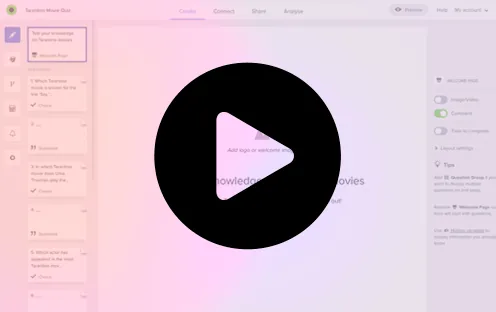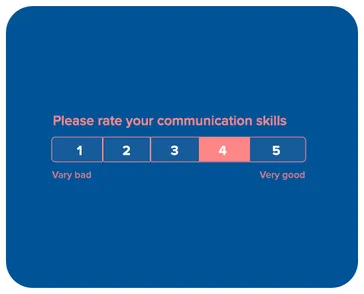
Recurring surveys are invaluable tools for businesses looking to monitor customer satisfaction, employee engagement, and overall operational efficiency. In this comprehensive guide, we’ll explore the benefits of recurring surveys and various effective methods for deploying them, including email, SMS, and WhatsApp.
What are recurring surveys?
Recurring surveys are systematic feedback collection tools designed to be administered regularly, such as weekly, monthly, quarterly, or annually. Unlike one-time surveys, which capture feedback at a single point in time, recurring surveys are continuous, providing ongoing insights into respondents’ sentiments, behaviors, and preferences. This approach enables organizations to track changes and trends over time, facilitating more dynamic and responsive decision-making. Recurring surveys can cover a wide range of topics, from customer satisfaction and product usability to employee engagement and market trends, making them a versatile instrument in the toolkit of any data-driven organization.
Why recurring surveys are beneficial
Continuous feedback loop
One of the primary advantages of recurring surveys is establishing a continuous feedback loop. Regularly collecting feedback allows businesses to stay updated with their stakeholders’ evolving needs and sentiments. This proactive approach helps identify issues before they become significant problems and seize opportunities to enhance service or product offerings.
Improved data accuracy
Conducting surveys at regular intervals tends to make the data collected more accurate and reliable. This minimizes the risk of anomalies and ensures that the feedback reflects genuine trends and patterns over time. This can be particularly beneficial for tracking changes in customer satisfaction or employee morale.
Increased engagement
Recurring surveys signal to customers and employees that their opinions are valued and considered. This ongoing engagement can foster a sense of belonging and loyalty. When stakeholders feel heard, they are more likely to stay committed to the brand or organization.
Ways to conduct recurring surveys
1. Email Surveys
Email surveys are one of the most popular and effective methods for conducting recurring surveys. Here’s why they work well and how to optimize them:
Broad reach: Email surveys can reach a wide audience, making them ideal for businesses with large customer or employee bases.
Flexibility: They allow for detailed questions and can include various formats like multiple-choice, open-ended, and rating scales.
Automation: Tools like Responsly make it easy to automate email surveys, ensuring they are sent out at regular intervals without manual intervention.

Keep it concise: Respect the respondent’s time by keeping surveys short and to the point.
Personalize: Use personalization techniques to make the survey feel more relevant to the recipient.
Follow up: Send reminders to increase response rates, and share the results and actions taken based on the feedback to close the feedback loop.
Check out our top e-mail survey tools!
2. SMS Surveys
SMS surveys are perfect for reaching audiences that are always on the go. Their high open and response rates make them a powerful tool for gathering feedback quickly.
High Engagement: SMS messages have an impressive open rate, often above 90%, ensuring that your survey gets seen.
Speed: SMS surveys are typically short and can be completed quickly, which encourages higher response rates.
Reach: They are particularly effective for reaching audiences in regions with lower internet penetration.

Be concise: Due to character limits, questions should be brief and to the point.
Timing: Send surveys at times when recipients are most likely to respond, avoiding late nights or early mornings.
Follow Up: Use follow-up messages to thank respondents and inform them about any actions taken based on their feedback.
Choose the best distribution channel for your survey distribution with our SMS vs. Whatsapp guide!
3. WhatsApp Surveys
WhatsApp surveys leverage the messaging app’s popularity and convenience to collect feedback. With over 2 billion users, WhatsApp is an excellent platform for engaging with your audience.
Rich Media: WhatsApp allows for the inclusion of images, videos, and voice notes, making surveys more interactive and engaging.
Instant Feedback: Responses can be received in real-time, allowing for quick analysis and action.
Personal Touch: The informal nature of WhatsApp can make respondents feel more comfortable and willing to share honest feedback.

Interactive: Use rich media to make the survey more engaging.
Conversational Tone: Keep the tone casual and friendly to encourage participation.
Privacy: Assure respondents that their feedback is confidential to build trust.
Read more about How to create a survey on WhatsApp!
Conclusion
Implementing recurring surveys is a strategic move for any organization aiming to stay ahead of the curve. Businesses can gather continuous, accurate feedback that drives improvement and growth by leveraging tools like email, SMS, and WhatsApp. Remember, the key to successful recurring surveys lies in consistency, relevance, and responsiveness to the feedback received. Start integrating these methods today to build stronger relationships and make more informed decisions.







